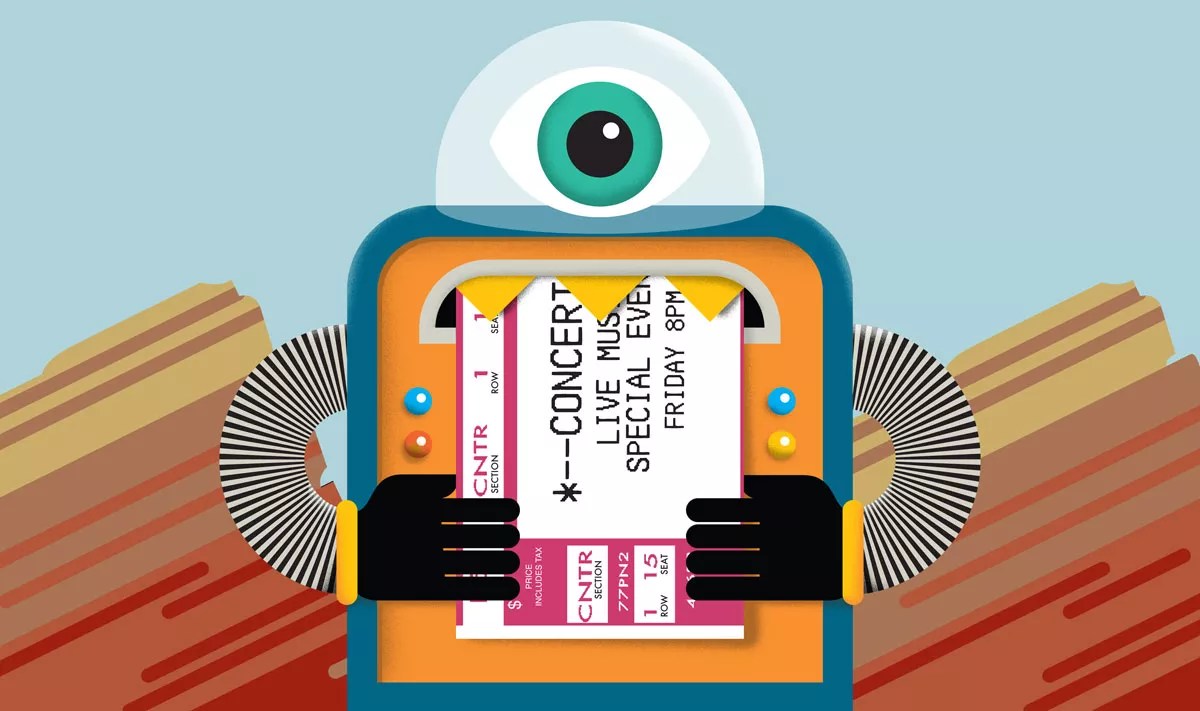
Westword

Audio By Carbonatix
There are plenty of frustrations when it comes to buying concert tickets online, such as service fees, waiting rooms, lightning-fast pre-sales, and scalpers upselling tickets on the secondary market.
At Westword, we even see complaints about concert tickets in comments underneath posts on our Facebook page when we’ve written reviews or previews of sold-out concerts. Despite having nothing to do with the venues, we get it: Would-be ticket purchasers need somewhere to go to air their horror stories. In fact, there were so many complaints about two sold-out Tom Petty and the Heartbreakers concerts at Red Rocks in 2017 – with many readers claiming a majority of the tickets went to scalpers or bots – that we were inspired to write an entire cover story about how ticketing really works at Red Rocks (“Bot or Not: Who Really Gobbles Up Red Rocks Tickets?,” August 22, 2017).
This week, there’s an interesting new survey out about nationwide consumer confidence when it comes to purchasing concert tickets online. The study itself is a bit of a marketing ploy – it was commissioned and is being promoted by a ticket-buying startup that’s trying to get you to use its platform (the company is called Aventus and uses blockchain technology, for those of you who care to check it out), but the survey results themselves are revealing.
Pressed for details about the survey methodology, representatives for Aventus told us that the survey was sent out using Amazon’s Mechanical Turk, a third-party crowdsourced survey service which has a margin of error of 3 and a 95 percent confidence level. One thousand people who answered “yes” to the required question “Have you purchased a concert ticket online?” went on to complete the entire survey. The respondents were made up of a ratio of sixty/forty women to men, and hail from all over the United States.
So what did the survey say?
Basically, it confirms that a lot of us are sketched out about buying tickets online. Survey says: Nearly two-thirds of respondents are worried about buying counterfeit tickets or getting scammed when they purchase tickets. And 12 percent of all respondents have purchased a concert ticket that turned out to be a scam, with men nearly 2.5 times more likely to be scammed than women.

Aventus
Data shows that most people are not fans of buying tickets on the secondary market – including Craigslist. And 80 percent of respondents said they would be more likely to purchase a concert ticket if they could avoid using secondary marketplaces.
And here’s where our coverage of Red Rocks tickets and bots comes in. Because people hate buying scalped tickets, consumers tend to scramble to purchase concert tickets as soon as they are released.
In this survey, 77 percent of respondents felt the need to purchase tickets immediately upon their release. And 57 percent of respondents have waited online, ready to buy tickets as soon as they become available, but of those, 69 percent were still unable to purchase their tickets before the event sold out.

Aventus
This last point underscores a lot of the frustrations around buying tickets to sold-out shows. What we found in our deep dive on Red Rocks tickets was that for popular shows, it was high demand rather than any nefarious scalping or bot activity that causes the most problems.
Here’s the math, in an excerpt from our story:
“According to Denver Arts & Venues, there were 22,000 people in the waiting room for the first Tom Petty on-sale. DeWulf says that it would not be out of the question to see 30,000 sessions (some of those representing people using multiple devices) open in a waiting room before a Red Rocks sale.
Citing a hypothetical scenario in which 9,000 seats become available during a single on-sale and there are 30,000 active sessions in a waiting room, DeWulf presents some sobering math. “Say it’s an average of three tickets per person per order. That basically means that 3,000 people of the 30,000 are going to get tickets,” he explains. “So the larger story is that 27,000 of the 30,000 aren’t going to get tickets and are going to be disappointed. That’s just supply and demand.”
What does it all mean? In the cases of very popular concerts, a lot of times there’s nothing you can do except pray that you luck out in a virtual lottery. In good news, AEG has tried to address these frustrations – for select concerts – with a new lottery that at least allows fans more flexibility when they buy tickets. Still, people report being frustrated.
In short, for aspiring ticket buyers: Good luck out there. And feel free to keep sending your ticket-buying horror stories to editorial@westword.com.